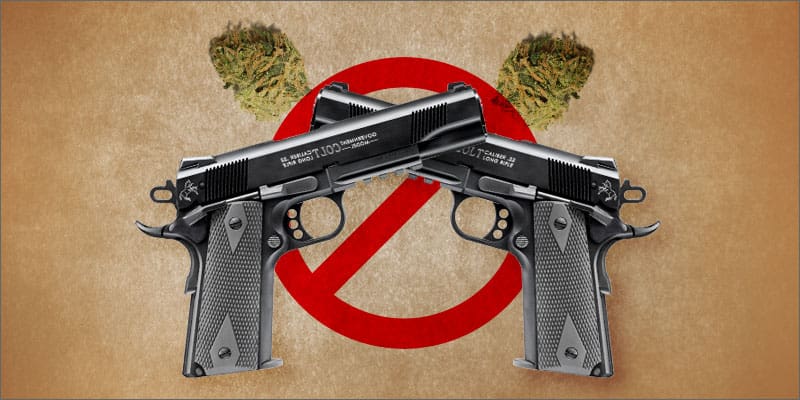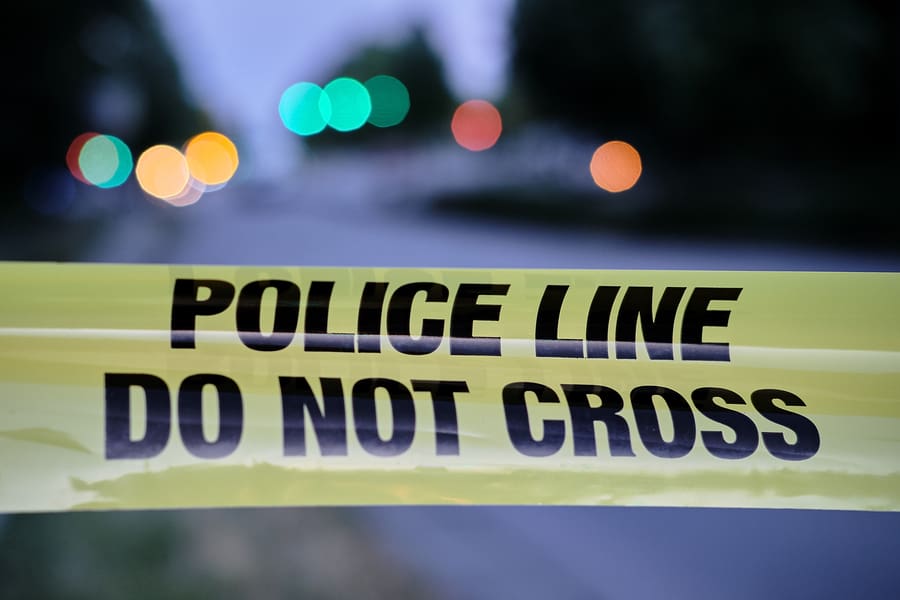Armed Intelligentsia member Tommy Knocker asks:
I was watching the news today and I see how witnesses to the Trayvon shooting are starting to change their story. Soooo….got to thinking…..As the cardinal rule for DGU situations is to STFU, is it necessary for eye witnesses to also STFU? Being a witness to a major crime and having your name and story circulate in the news media can be detrimental to your health. It can be detrimental to your immediate family. Nothing like having some angry guys hunting you down cause you said something in court.
While it may bring up recollections of Kitty Genovese (for those of us old enough), or being silenced by the fear of the mafia getting you or yours, I suspect that this effect may be at work in the Trayvon case now. I would like to hear what you folks think about this.
Thanks for the question, Tommy! Much of my professional career involves reading and parsing police reports, in the (often frustrated) hope of finding or creating some reasonable doubt in favor of my clients. Eyewitness reports to police, taken at or immediately after the commission of a crime, often provide the best and most actionable intelligence for apprehending and convicting the perpetrators.
Eyewitness reports to police are usually bad news for my clients, for whom less (evidence) truly is more (possibility for acquittal). In several of my own cases, including one open carry case, innocent people have avoided conviction because concerned citizens stepped forward to tell the truth about what they saw.
The rule of law is what elevates our society above the psychopath’s paradise of anarchy, and what separates the United States from the corrupt and lawless hell-holes of Mexico, Russia or Pakistan. Our system of justice, imperfect as it is, depends existentially on our commitment to let the courts administer punishment instead of claiming personal vengeance, to give truthful testimony as witnesses, and to sit in impartial judgment as jurors.
Edmond Burke is quoted (or paraphrased) as saying “All that is required for evil to prevail is for good men to do nothing,” and this duty extends to helping expose the perpetrators of violent crimes. Where no-one will cooperate with police, as in many inner cities (and even more desperately poor rural areas), crimes go unsolved and sociopaths are free to victimize again and again.
Like all duties, this civic duty is not absolute. Would I risk my life and my loved ones, after being threatened with retaliation by a large organized crime syndicate if I testified against a mobster? I have no idea. I might not be as brave as I think I am, especially when I’m risking other people’s lives as well as my own.
But what should you do if you witness a defensive gun use in your community? Here’s what I would do: get myself and my family to cover, or concealment if cover is not available, and have someone call 911 while maintaining situational awareness and keeping my own firearm accessible but not visible. You don’t want to have a weapon visible when the cavalry shows up at your hot LZ. When the cops show up (and once I and my family are safe) I’d tell them exactly where I’d been and exactly what I’d seen.
Calling 911 as a witness will insulate you from p0lice suspicion; cops like 911 callers, and prosecutors love to play their tapes in court while the defendants squirm. You’ll be called a Good Samaritan for making the call, and the system will treat you pretty well. Your statements to police and your testimony in court will make it more likely that the perp is brought to justice, and less likely that an innocent armed citizen will be wrongfully convicted for trying to defend his life.
But what about the risk of retaliation from the perp’s associates, family members, or political agitators? It’s impossible to predict the political fallout from any violent incident that you’re unlucky enough to witness, but I don’t think it’s a risk worth worrying about. My part of the country has experienced literally dozens of DGUs in the last year, and I’m not familiar with a single witness being threatened or intimidated.
Cooperating with law enforcement might be a bad lifestyle choice if you’re an accountant for a drug cartel, but DGUs almost always involve low-level street crime. When the perp is a mentally deranged or drugged-out street criminal, the chance of retaliation from his family or associates is next to nothing. If you are threatened, it’s time to call 911 again (and place a direct call to the prosecutor too) to tell them what happened. Trust me: they’ll take you seriously, and they’ll bring down all kinds of hell on the defendant and anyone who’s trying to help him.
Witness intimidation is a fairly serious felony in its own right in Washington State, with each instance of intimidating contact or conduct treated as a separate offense for purposes of sentencing.
The individual risks posed by cooperating as a State’s witness are very small, and the collective risk of letting the bad guys win is very real. If you have the bad fortune to witness a shootout involving the Russian mafia, the Gypsy Jokers, or the Juggalo street thugs, all bets are off, however. Keep yourself and your family safe, and try to do the right thing.
Even though I’m a lawyer, what I write here doesn’t constitute legal advice for any given situation. If you ever find yourself being interviewed by police and you start to have any concern that they might consider you a suspect, you should immediately exercise your 5th Amendment right to STFU and your 5th and 6th Amendment right to lawyer up.





I also read today how the witnesses in the Zimmerman case have changed their stories, and wondered if the same group that posted a $10,000 bounty of George Zimmerman were also pressuring witnesses to change their memory of what they saw. I hope if I am ever in a situation where I’m a witness, that I tell the authorities what I saw, and avoid all contact with any media, to at least attempt to remain below the radar. It might be nice to be famous, but not if it puts a target on my back.
Protip: Avoid police, and situations where violent crime is *likely* to occur.
How would I know if it was a DGU? With family in tow I wouldn’t hang around to find out. It could be a gang hit, start of a shooting spree, a drunk, anything. Where do most DGUs happen statistically? I’d assume in the home but could be wrong. American society is hemorrhaging social trust. Third World USA meets Bowling Alone is not a place I’d stick my neck out. So yea, my 2¢.
I’m interested to know how and in what details the stories have changed. Immediate statements seem the most reliable. I would take anything said at this remove of time from the incident with a rather large pile of salt.
I reckon the testimony of the guy who saw Mr. Martin delivering an “MMA style” (his words) beatdown to Mr. Zimmerman will be the most valuable in his defense… if somebody manages to get him to change his story there could be some problems.
Anyhoo, my personal opinion and choice is to have as little to do with the police as possible. Regarding witness statements/testimony, there would have to be some sort of incentive (e.g. whistleblower program, etc.) in order for me to provide any information in a case unless it involved an issue I cared about (which would be incentive in and of itself). Pretty simple logic – you maximize your utility. Testimony/cooperation with the state definitely has some costs involved if you’re otherwise unrelated to the case or you aren’t getting something in exchange for your testimony – for example, the time you’ll spend making a statement, the time you might have to spend on the stand, the possible impact to your professional/personal life, the risk of your information being exposed, etc. – and a simple cost/benefit analysis would likely reveal you’re better off keeping your mouth shut. Ceteris paribus, there’s not much reason to cooperate with the state as far as I’m concerned.
Also, no matter what, unless you’re going to get a reward for it (special recognition, remuneration, other advantage) – and even if you will, sometimes – it’s better to avoid witnesses in your dealings, especially those that might be problematic like DGUs.
[Also, I am NOT posting comments too quickly, board.]
Well unless we feel it is some sort of mafia thing I would say by all means tell what you know. Actually I would go one step further. I would write down everything I thought I saw. At least once I calmed down.
Then again my personal experience is much different than most. Witnessing a shooting for most folks is terrifying. People freak or are in tremendous fear. In many cases this make their accounts less reliable.
Terrific blog post Chris! Gaining insight into the legal side of DGU is a real challenge, and posts like this are very appreciated. I’m surprised by your comment that, “My part of the country has experienced literally dozens of DGUs in the last year…” I didn’t think those practicing criminal law got that much DGU practice. Does your part of the country include both sides of the Columbia?
Just the north side of the river, actually. I haven’t handled any DGUs myself, although a few of my friends have had great success with them.
The ‘rash’ of DGUs I was referring to are the dozen or so lethal DGUs in Oregon and Washington since November. Seattle, Vancouver, Walla Walla, Spokane, and Portland have each had a few home-invasion robberies where the bad guy ended up dead. Here’s an incomplete summary I penned about six weeks ago.
http://www.thetruthaboutguns.com/2012/04/chris-dumm/nw-burglars-continue-to-not-get-it-another-burglar-killed-more-flee/
Terrific blog post Chris! Gaining insight into the legal side of DGU is a real challenge, and posts like this are very appreciated.
I’m surprised by your comment that, “My part of the country has experienced literally dozens of DGUs in the last year…” I didn’t think those practicing criminal law got that much DGU practice. Does your part of the country include both sides of the Columbia?
Chris, I’m in complete agreement with you on everything you wrote, except this: the system will treat you pretty well.
It’s been my experience that the system will use witnesses, while defense counsel will do their best to wring witnesses dry. Witnesses will lose hours or days of work and many dollars for which they will not be properly compensated. In Federal criminal trials, the witness fee is $30 a day IIRC. State courts pay less. It doesn’t even come close to minimum wage.
Knowing this, would I still be a witness? Damn right I would, and with no second thoughts about it. The system blows, but it’s all we have.
Watched a few trials in my day. He who lies best wins. Fins, close discussion.
A trial is where twelve people decide which side has the best lawyer.
It’s easy to say in the abstract (and hard to know when concrete situations arise), but in general I think that speaking up when I know something relevant is part of keeping my end of the social contract.
I had a witness, a neighbor, come forward. It made my day, and saved me from the possibility of being charged. I’ll do the same for anyone in my town. That’s what makes it different from, say, West Philadelphia: One man has been charged with aggravated assault 24 times and they still haven’t convicted him. A gang lord. Intimidation of witnesses. Pick a neighborhood, rich or poor, that values testifying, before you buy! I’d raise the issue of witnesses in child abuse cases among Hassidim as an example of how a good community can go bad when honest testimony becomes a “pick and choose” phenomenon. Bearing honest witness is part of the law. That law.
I’m glad to hear a neighbor Did The Right Thing. That’s why I hope I’ll have the guts to pay it forward if I’m ever witness something I wish never had to happen.
He’s not guilty but he’s going to be railroaded into prison by the local government who should never have arrested him or charged him in the first place, no matter what color his skin was or what ethnicity.
We are now entirely ruled by corrupt officials who can do anything to anyone as long as the media are on their side. They have an endless money supply provided by us, with which to prosecute or persecute any of us. The public will never be the wiser and nor will there ever be accountability unless there exists an inside whistle blower at some time in the future. At that time the response will no doubt be”Oops, sorry” and “….. so it will never happen again….” and we all know exactly what that means don’t we?
“innocent people have avoided conviction because concerned citizens stepped forward to tell the truth about what they saw.”
faith in system renewed, feeling better…the point of Stand Your Ground, helping the innocent.
Comments are closed.